Hank
Williams Jr.

-
Inducted2020
-
Born
May 26, 1949
-
Birthplace
Shreveport, Louisiana
Emerging from his famous father’s shadow, Hank Williams Jr. created an influential sound of his own that blended country, blues, and rock. His music was bold, boisterous, defiant, outspoken, and often intensely biographical.
Williams Jr. knew how to entertain a crowd before he finished third grade. Born Randall Hank Williams on May 26, 1949, in Shreveport, Louisiana, he moved to Nashville a month later, when his father, Country Music Hall of Fame member Hank Williams, accepted an invitation to join the Grand Ole Opry. His father gave him the nickname “Bocephus,” which stuck. After his father’s death, in 1953, he was raised by his mother, Audrey Williams.
Under the guidance of his mother, Williams Jr. performed his first concert at age eight, joining the Audrey Williams Musical Caravan of Stars, a tour that included the Big Bopper and Carl Perkins. At age eleven, he appeared as a guest on the Grand Ole Opry. At age fourteen, he released his first album, featuring covers of his father’s songs, and he performed on television’s Jimmy Dean Show, Ed Sullivan Show, and Shindig! At age twenty, he already had scored eleven Top Forty country hits, and he had released twenty-one albums, including a greatest hits compilation.
Songs
00:00 / 00:00
00:00 / 00:00
00:00 / 00:00
Out of the Cradle, Endlessly Rocking
As he matured, and as his musical interests expanded, Williams Jr. desperately wanted to emerge from his famous father’s shadow and create a musical style and persona of his own. While in high school he formed a band, Rockin’ Randall & the Rockets, to play rock & roll, and he yearned to bring that side of himself into his country music career. In 1974, he moved from Nashville to Cullman, Alabama, with the intention of changing his life and his creative path.
“If I could make an album that showed the connection between country and the new rock, then I could look at myself in the mirror in the morning,” Williams Jr. wrote in his autobiography, Living Proof. “I’d be making my music, not Daddy’s, or Mother’s, or anybody else’s.”
In February 1975, he began work on his twenty-sixth studio album, enlisting contributions from Southern rockers Toy Caldwell of the Marshall Tucker Band, Charlie Daniels, and Chuck Leavell of the Allman Brothers. To celebrate the album’s completion, Williams Jr. embarked on a hunting trip to Montana. On August 8, 1975, he slipped on an icy ledge atop Ajax Peak and fell five hundred feet down a jagged slope, suffering massive head injuries. He underwent several operations and spent eight months recovering from the fall. While recuperating, his Southern rock album breakthrough, Hank Williams Jr. & Friends, was released. Merging country music with Delta blues and country rock, the album drew critical acclaim and attracted new, younger fans, but received backlash from the Nashville music community and some of his older fans.
Hank Williams Jr. knew how to entertain a crowd before he finished third grade.
Videos
“Family Tradition” and “Hey Good Lookin'”
live at Southern Illinois State University, Double Eagle Tour, 1990
“All My Rowdy Friends Are Coming Over Tonight” music video
1984
Recovery and Rejuvenation
Williams Jr. stayed the course, creating a sound that was bold, boisterous, defiant, outspoken, and often intensely biographical. His stage persona matched his sound, bolstered by longer hair, a cowboy hat, a beard, and sunglasses that hid the scars from his accident. His 1979 album Family Tradition sold well, as did its quickly issued follow-up, Whiskey Bent and Hellbound. The title songs from both albums became his first Top Five hits in six years, and both songs grew into anthems that brought audiences to their feet to sing along. In concert, he would display his talents on multiple instruments, from acoustic and electric guitar to piano, fiddle, banjo, and steel guitar. He also often set aside a concert segment to play a solo medley of blues songs and his own hits on acoustic guitar.
His hot streak lasted more than a decade. Williams Jr. earned twenty-one gold and platinum albums that were released between 1979 and 1992, including the five-million-selling Hank Williams Jr.’s Greatest Hits, released in 1982. His list of significant hits stretches through the years, and includes “Texas Women,” “Dixie on My Mind,” “All My Rowdy Friends (Have Settled Down),” “A Country Boy Can Survive,” “Leave Them Boys Alone” with Waylon Jennings and Ernest Tubb, “Man of Steel,” “All My Rowdy Friends Are Coming Over Tonight,” “I’m for Love,” “Ain’t Misbehavin’,” “Country State of Mind,” “Born to Boogie,” “Young Country,” and “There’s a Tear in My Beer,” a digitally created duet with his father.
“Hank Williams Jr., as everybody knows, is one of the best writers and singers of country music,” said Waylon Jennings, with whom he recorded a hit duet, “The Conversation,” in 1983. “I believe he’s one of the best blues singers on the scene, too.”
Widespread Acclaim and Recognition
With the success of his concert tours, Williams Jr. helped take country music into sports arenas, and he was named Country Music Association Entertainer of the Year twice, in 1987 and 1988, and Academy of Country Music Entertainer of the Year three times, from 1987 to 1989. The awards, at first, were slow to come, considering the massive success Williams Jr. enjoyed in the early 1980s. When accepting a CMA award for Video of the Year, Williams Jr. quipped, “You know, I make a little audio, too.”
When named winner of the CMA Entertainer of the Year honor in 1987, his first CMA Entertainer award, Williams Jr. did not hide his exhilaration. “This is the one old Bocephus has been looking for,” he crowed. “I guarantee it. I got to looking so long, I thought I was going to run out of glasses there for a few years.”
Williams Jr. won four Emmys for composing the theme song for Monday Night Football, and he was inducted into the Nashville Songwriters Hall of Fame in 2007. By the 1990s and into the next century, his influence on a generation of country stars who drew on rock & roll had become quite apparent.
“Listen closely to country radio’s defining sounds and points of view over the last four decades,” wrote David Cantwell in the New Yorker magazine in 2016, “and Hank Williams Jr. is right there—often, he was there first.”
—Michael McCall
-
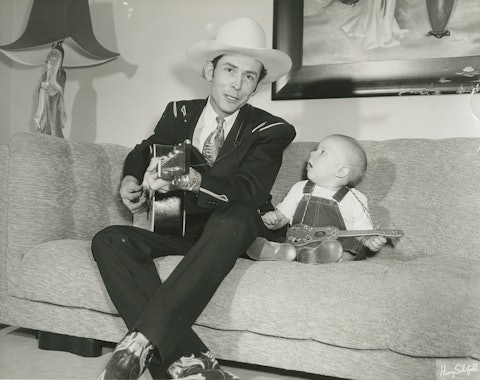
Hank Williams Jr. with his father, Hank Williams, 1950. Photo by Henry Schofield.
-
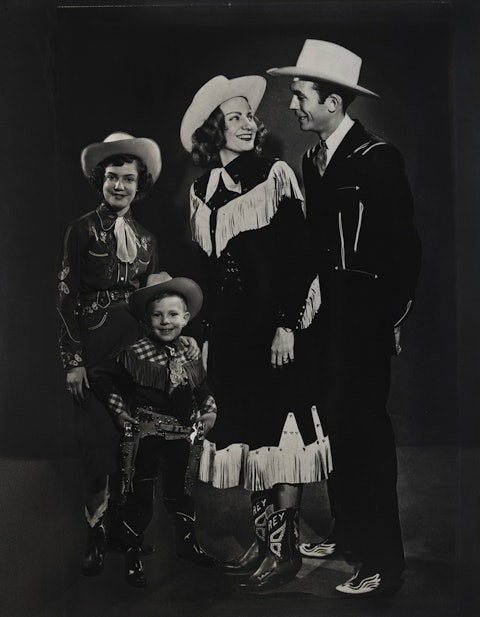
From left: Lycrecia Williams, Hank Williams Jr., Audrey Williams, and Hank Williams, 1953. Photo by Walden S. Fabry Studios.
-
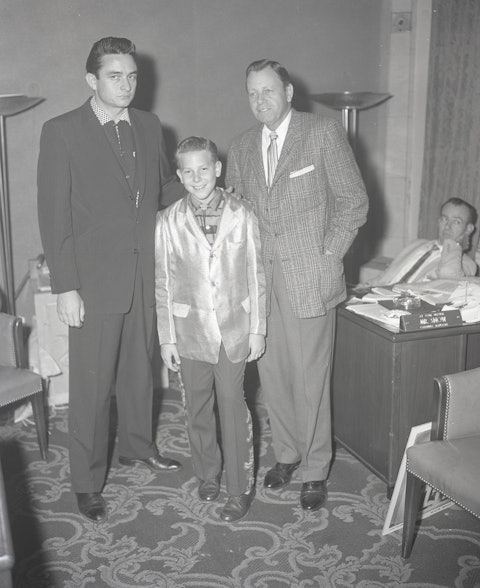
Johnny Cash, Hank Williams Jr., and Jimmie Davis, 1958. Photo by Elmer Williams.
-
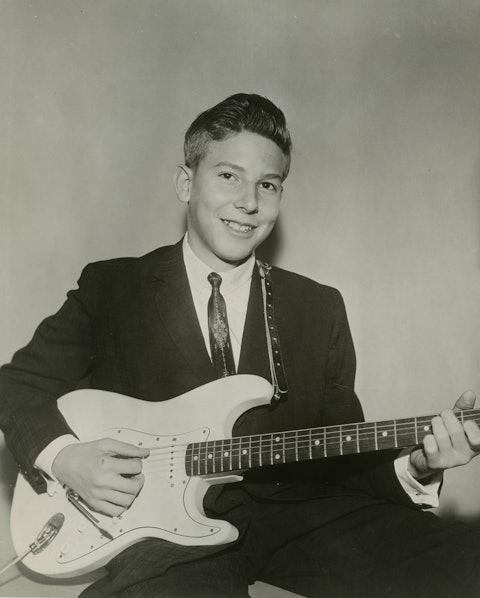
Hank Williams Jr., 1963. Photo by Elmer Williams.
-
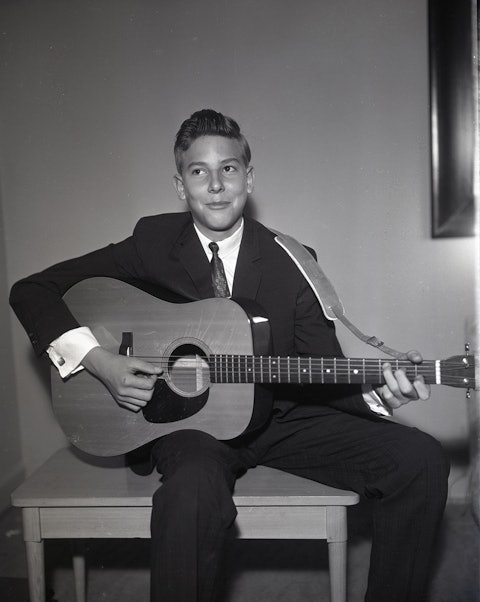
Hank Williams Jr., 1963. Photo by Elmer Williams.
-
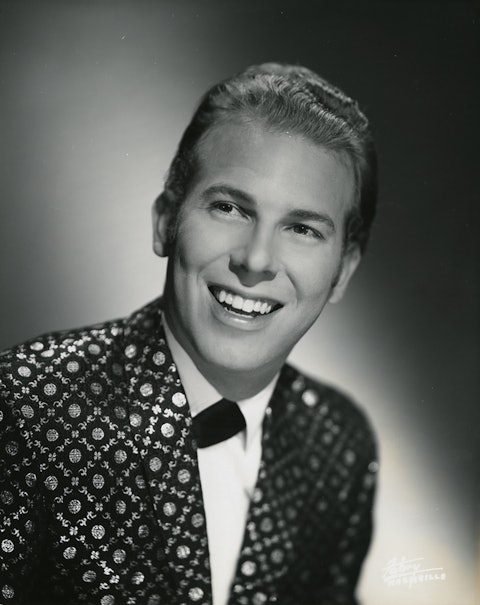
Hank Williams Jr., 1966. Photo by Walden S. Fabry.
-
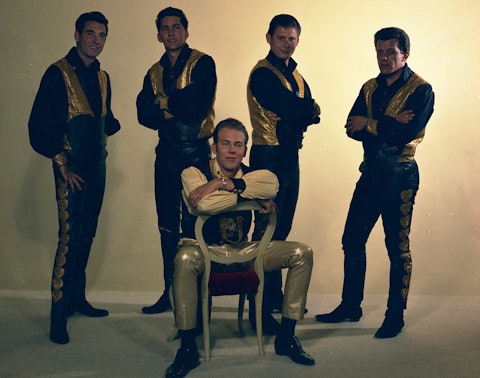
Hank Williams Jr. (seated) and his band, the Cheatin’ Hearts, 1966. Photo by Walden S. Fabry Studios.
-
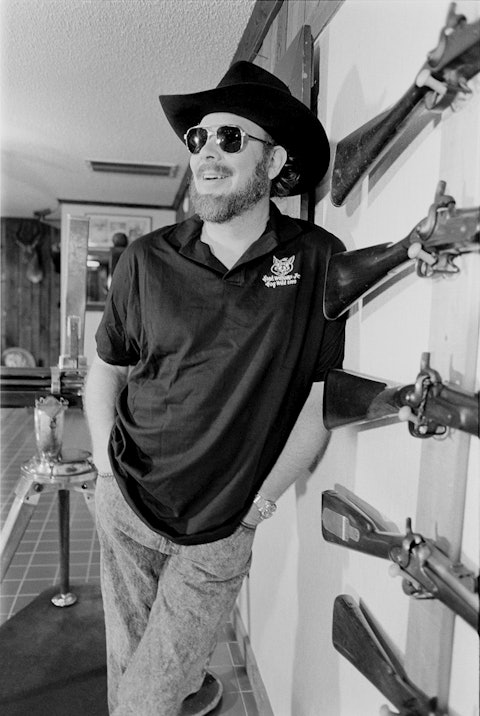
Hank Williams Jr., 1995. Photo by Raeanne Rubenstein.
-
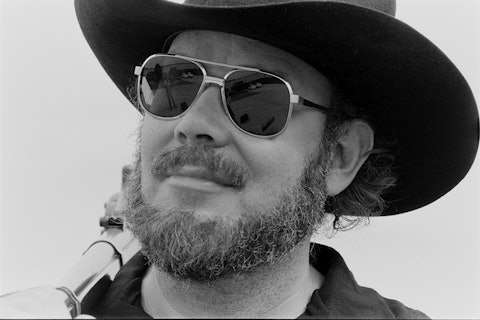
Hank Williams Jr., 1995. Photo by Raeanne Rubenstein.



